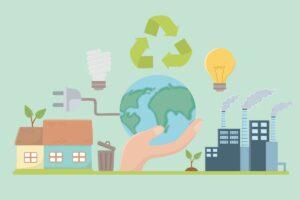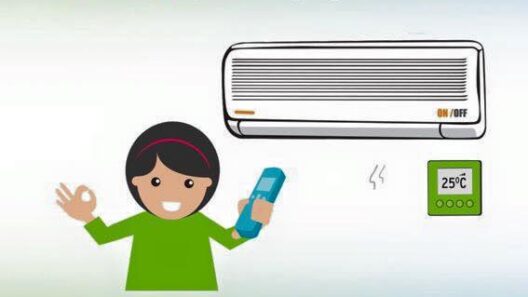Con Edison, one of the largest energy providers in the United States, plays a pivotal role in empowering households to conserve energy efficiently. Energy conservation has become an increasingly crucial topic, especially given the escalating concerns surrounding climate change, resource depletion, and rising utility costs. Within this context, Con Edison not only supplies energy but also acts as a beacon of sustainability, assisting consumers in navigating their energy consumption more judiciously.
The company’s initiatives focus on several core areas: customer education, incentive programs, and innovative technologies. The overarching goal is to foster a more energy-conscious society while helping individuals reduce their energy bills. This symbiotic relationship between the utility provider and its customers emphasizes a collective responsibility towards energy conservation.
First and foremost, Con Edison recognizes the importance of educating consumers about their energy usage. Many people are unaware of how their everyday activities contribute to energy consumption. For instance, simple actions like leaving lights on, excessive heating or cooling, and inefficiencies in appliance use can all lead to inflated electricity bills. Con Edison addresses this issue through comprehensive educational campaigns which elucidate energy-saving practices.
One notable effort is the “Save Energy” campaign, where the company disseminates tips and strategies for households to reduce their consumption. From utilizing energy-efficient appliances to implementing smart thermostats, these recommendations are designed to integrate seamlessly into daily routines. Homeowners are urged to perform regular energy audits—either through DIY methods or by availing themselves of Con Edison’s professional evaluation services. This proactive approach helps identify areas of excessive energy use and provides tailored solutions to rectify the inefficiencies.
Incentive programs further fortify Con Edison’s commitment to energy conservation. The company offers rebates and financial incentives that make it economically viable for households to adopt energy-efficient technologies. This might include rebates for the purchase of energy-efficient appliances, such as refrigerators, washing machines, and even heating and cooling systems. These incentives not only mitigate the initial costs associated with upgrading appliances but also serve as a nudge for consumers to make more sustainable choices.
Another innovative program introduced by Con Edison is the demand response initiative. This program is particularly relevant during peak usage periods when the demand for electricity exceeds supply. Participants in the program are compensated for reducing their energy consumption during these critical times. By providing consumers with both financial benefits and a sense of community involvement, this initiative encourages a more dynamic approach to energy conservation and illustrates how collective efforts can create substantial change.
Innovative technologies are also at the forefront of Con Edison’s strategy. The integration of smart grids and advanced metering infrastructure facilitates real-time monitoring of energy use. These technologies empower customers to track their consumption patterns, allowing them to identify and correct overuse. Smart home devices, when used in conjunction with Con Edison’s services, enable users to optimize energy usage effortlessly. This combination of technology and awareness is transforming how consumers interact with their energy consumption.
Con Edison also recognizes the importance of renewable energy sources in the broader conversation about sustainability. By encouraging solar energy adoption through various programs and incentives, the company advocates for a diversified energy mix that reduces reliance on fossil fuels. Homeowners can benefit from net metering, which allows them to sell excess energy back to the grid, further enhancing their economic savings while contributing to a cleaner environment.
Another crucial aspect of energy conservation involves behavior modification. Con Edison’s resources extend beyond mere financial incentives; they advocate for an overarching energy-efficient lifestyle. For instance, behavioral nudges, such as reminders to unplug devices when not in use or to turn down the thermostat during winter months, can help entrench these habits into the daily lives of consumers. The psychology of conservation is complex, but by fostering a culture of energy awareness, Con Edison seeks to cultivate lasting changes in consumer behavior.
Furthermore, Con Edison emphasizes community engagement in its conservation initiatives. Programs that focus on outreach to local organizations or schools create a ripple effect, spreading awareness and the importance of energy conservation. Educational workshops, sustainability fairs, and partnership with community leaders mark efforts to disseminate knowledge. By galvanizing communities, Con Edison reinforces the idea that energy conservation is a collective effort, not only an individual responsibility.
Despite the numerous efforts undertaken by Con Edison, challenges remain. It is essential to recognize that behavior change is not instantaneous; it often requires time, persistence, and continuous education. While incentives and technology offer pathways to conservation, the cultivation of a conservation mindset is a more intricate endeavor. By addressing this factor, Con Edison helps lay the groundwork for a more energy-efficient culture that benefits everyone.
As energy resources continue to dwindle and environmental concerns escalate, the role of utility companies like Con Edison becomes increasingly significant. Their commitment to education, technology, and community engagement embodies a forward-thinking approach that not only serves to reduce energy consumption but also cultivates a sense of stewardship among consumers. By partnering with Con Edison, households can take meaningful steps towards conserving energy at home, ultimately contributing to a more sustainable future.








Results speak for themselves, delivers exactly what promised. Achievement-oriented service. Results-driven success.